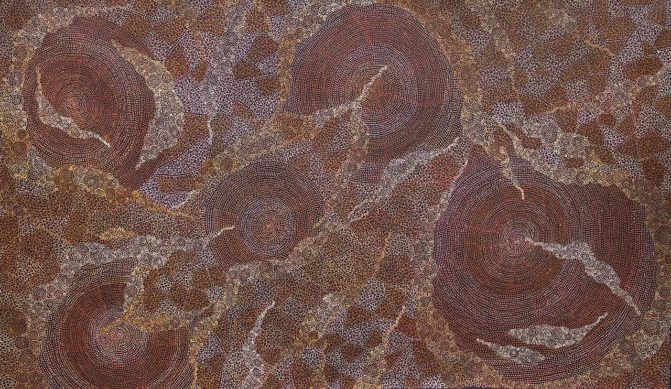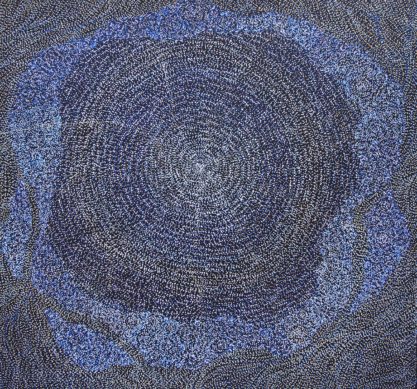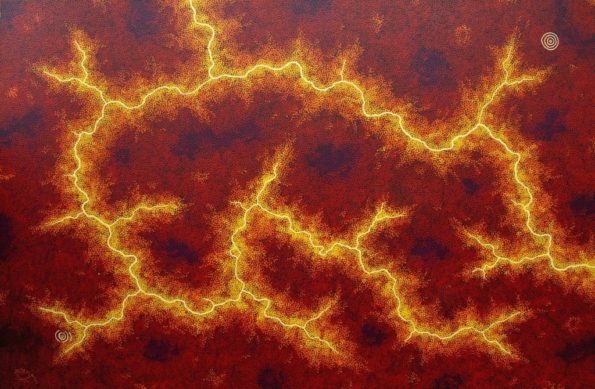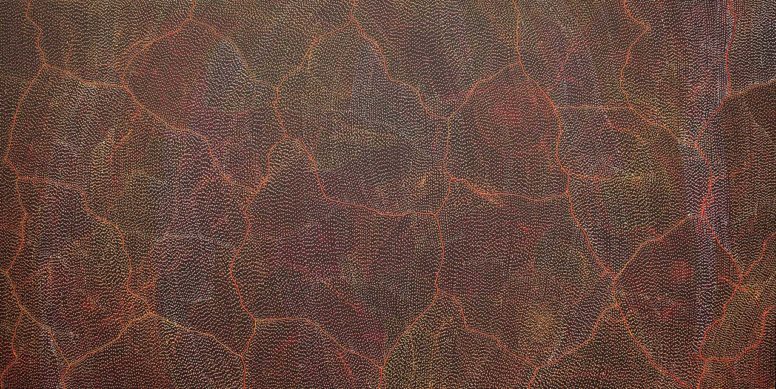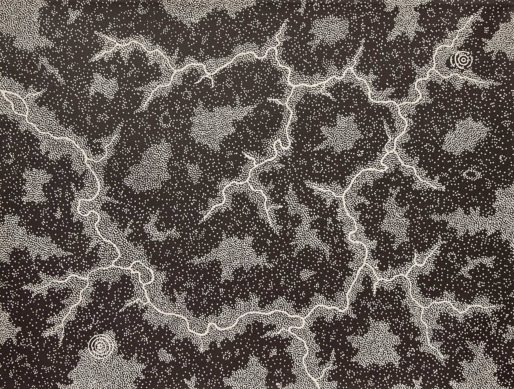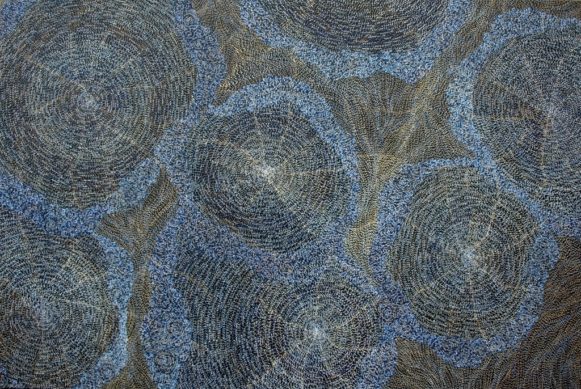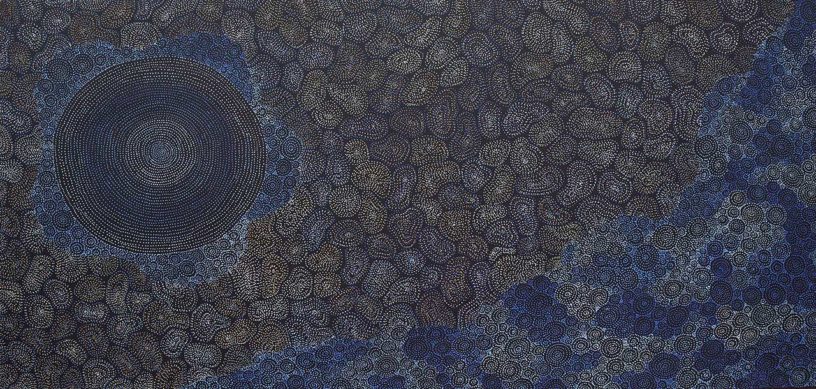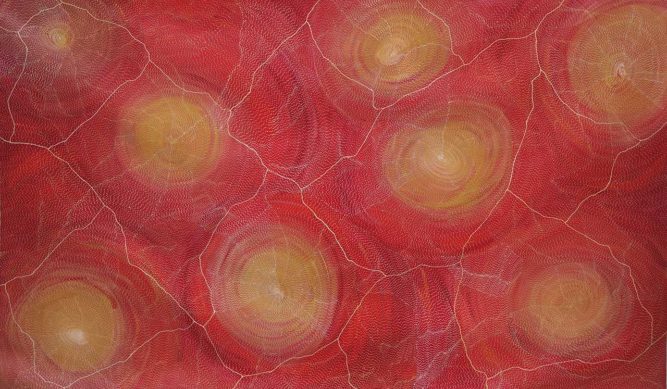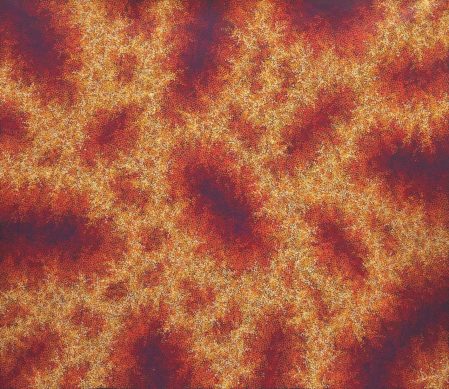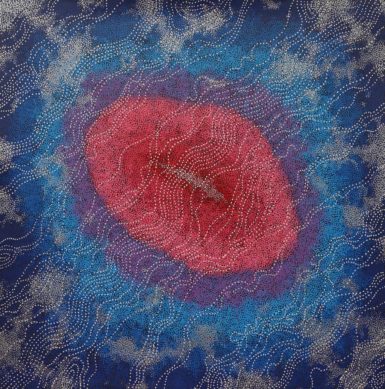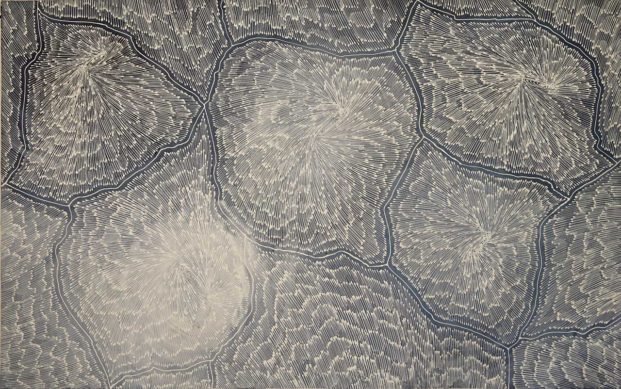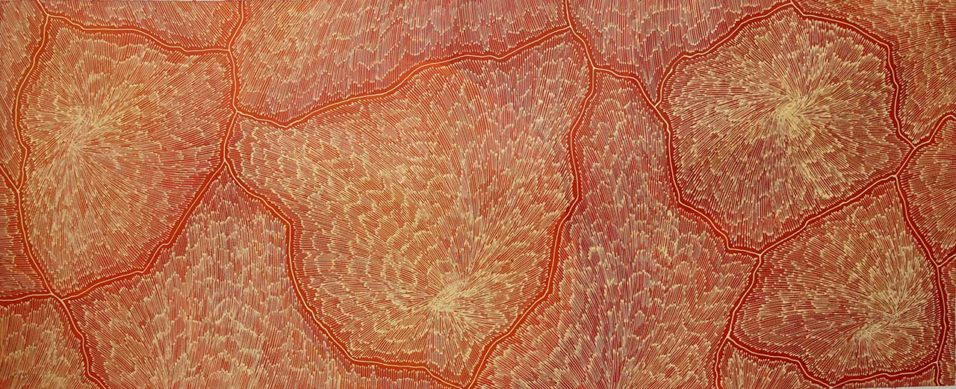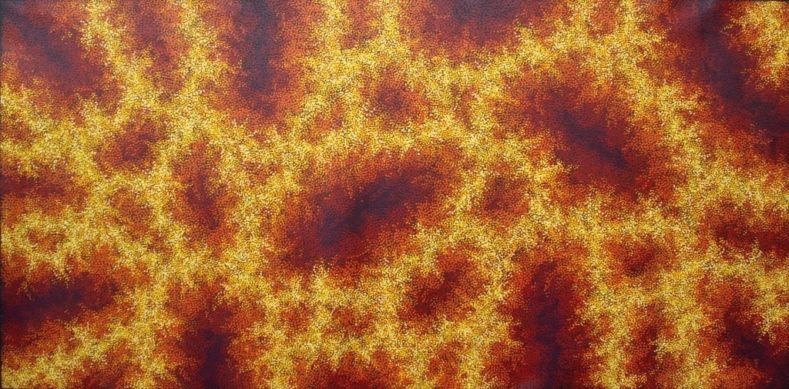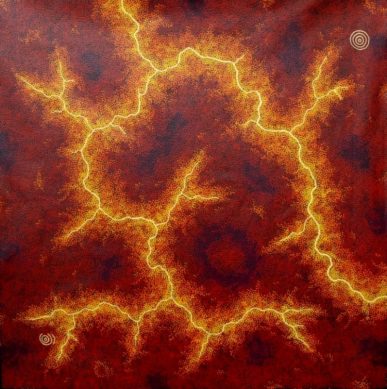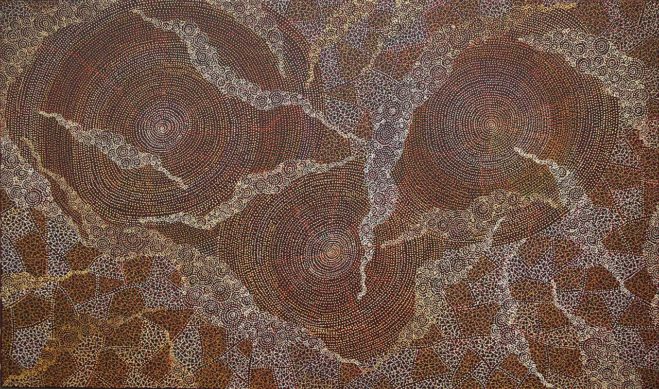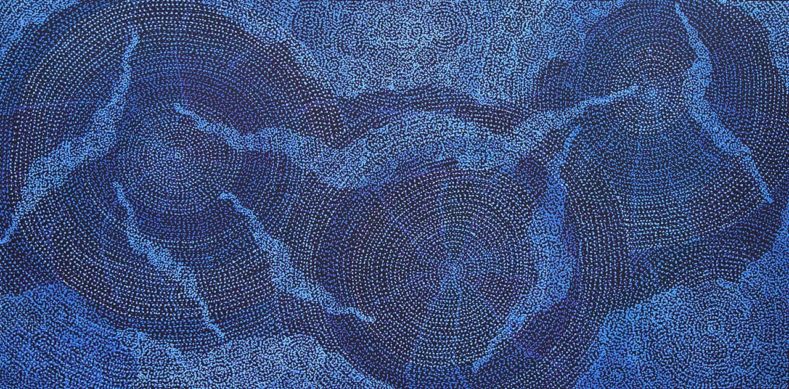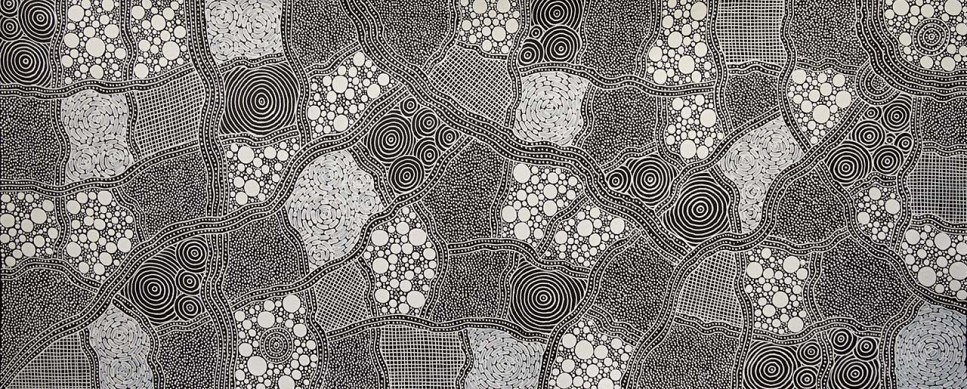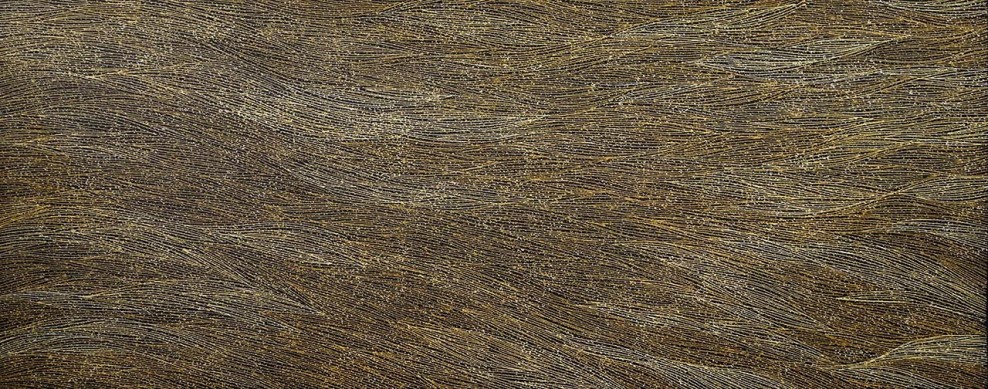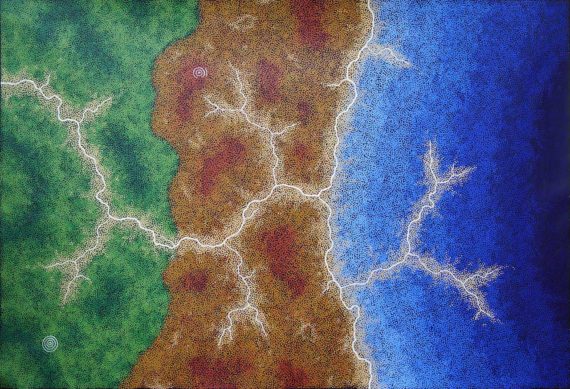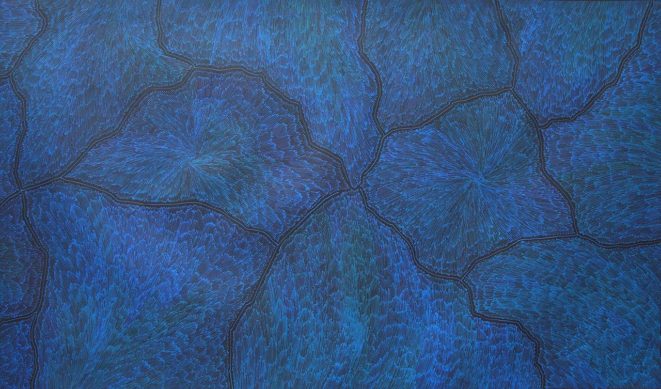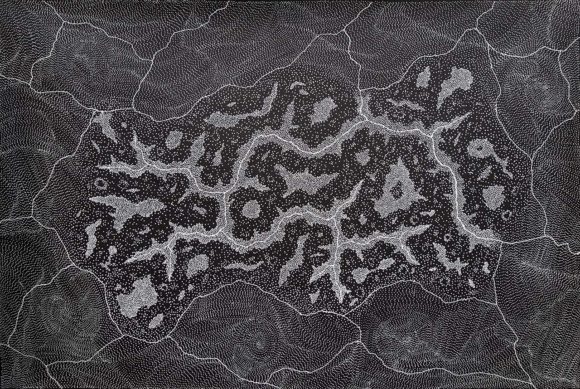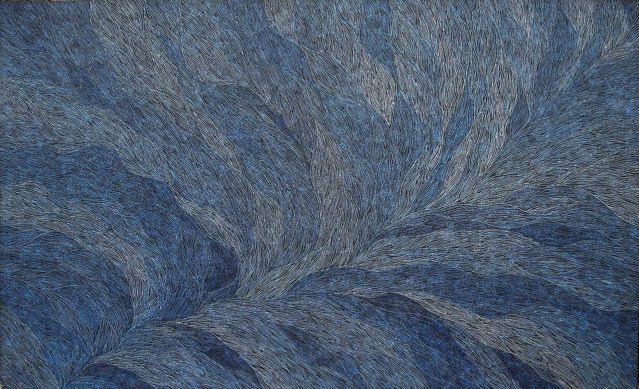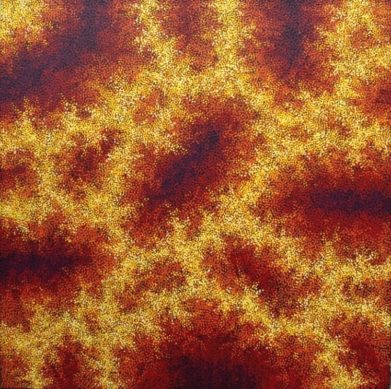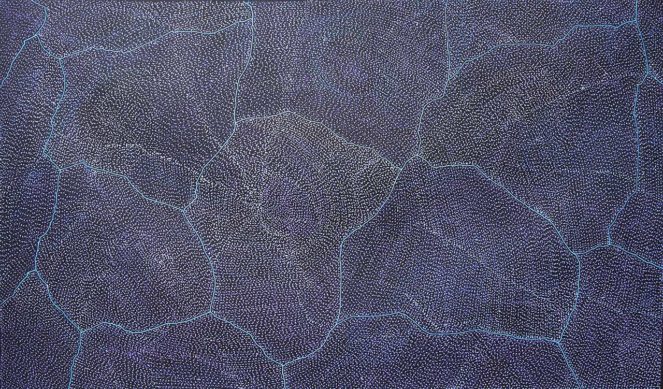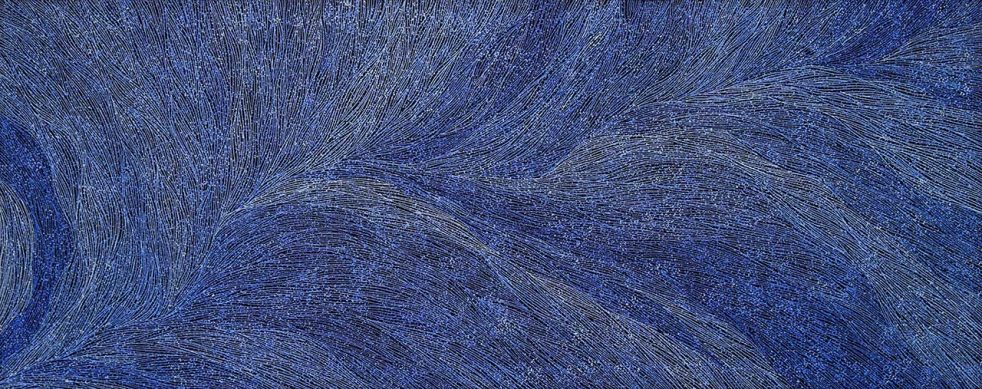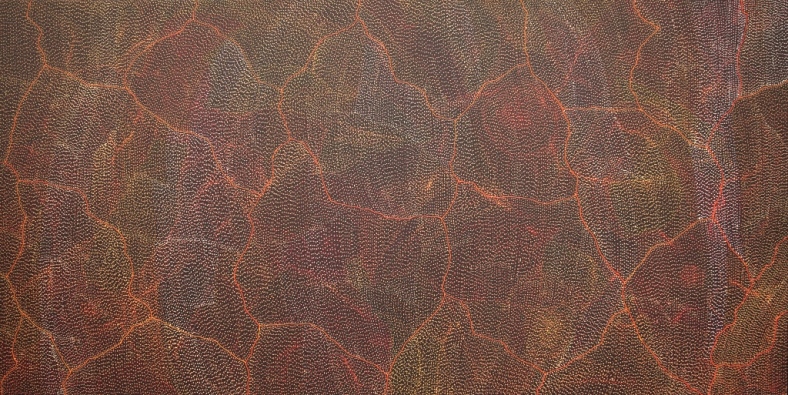Ancestors, Elements, Heritage - Sarrita King & Tarisse King
Gallery 1
22 Sep – 31 Oct 2017
Sarrita King & Tarisse King share an Indigenous heritage connected to Gurrindji culture at Wave Hill in Central Northern Territory. They share this through their father’s line and combine this with their own upbringing in Darwin and Adelaide, and through travelling the continent and experiencing the great diversity it provides.
Creating canvases that evoke the detail and elemental forces of the Land, the King sisters have paid tribute to their father’s artistic and philosophical ideas. Some of their largest canvases take in the totality of land or fire or water, creating an energetic portrayal of the sustaining elements of nature. The fine detail and the reference to massive forces work together to produce engrossing artworks that can be viewed on a macro or micro level. The infinite layers of dots add up to a massive image of the grand forces at work on the planet.
Having shared studios and collaborated together on single paintings, Sarrita and Tarisse now live over 4000 kms apart. But still they manage to synchronise their lives and their artistic output in order to exhibit together and progress their reputations. They maintain their position as one of Australia’s most exciting and engaging creative teams.
The work of Sarrita King & Tarisse King will be on exhibition in the upstairs galleries at Japingka from 22 September to 31 October.
Exhibition Walk Through
Sarrita and Tarisse King are putting new works up for their exhibition, Ancestors, Elements, Heritage. It’s always fantastic to see their latest paintings because these two artists work so closely together.
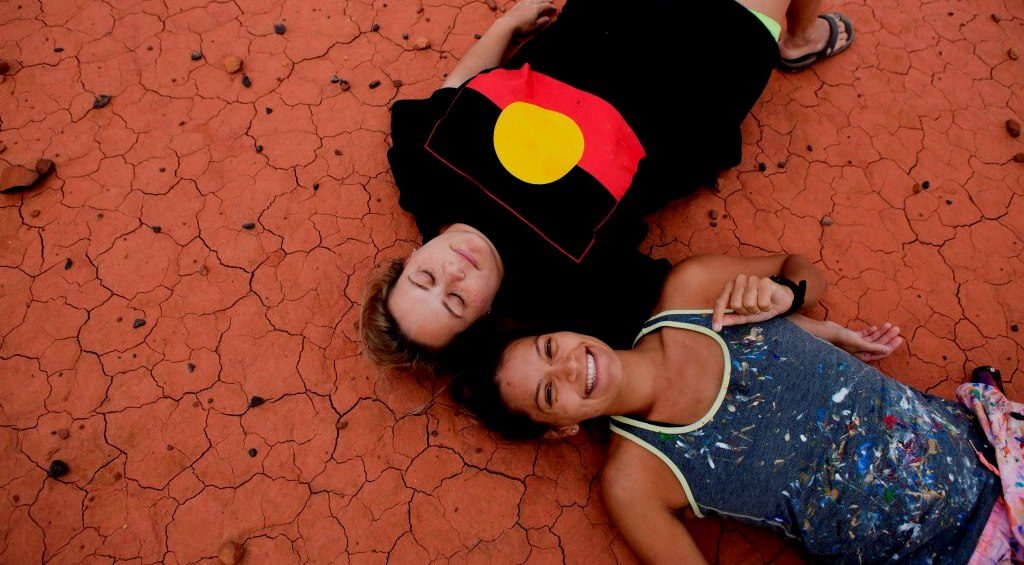
At the moment they’re physically further apart than they ever have been. Tarisse is living in New Zealand with her family there. Sarrita has been based in Darwin. They’ve been more than 4000 kilometres apart for much of the year. Both have been busy with their own families. Despite the distance, they coordinate so well on these creative projects. This exhibition is a delight.
The Lightning Theme
Sarrita has produced a series of paintings around the lightning theme. She references the dramatic tropical lightning storms up at Darwin that she’s known for much of her life. There are three paintings hanging together in Gallery 1 that feature different aspects of lightning. The largest one of these is called Lightning Over Land that suggests the vast dry spaces of the interior.
This painting has some things in common with Sarrita’s big Ancestor paintings with the dry colour palette. There’s an absorbing quality to the structure of the dots and to the surface terrain that she creates in her work.
Blue Lightning
Next, there’s a work which is a variation on that idea of lightning. It has a deep blue; almost like the colour of midnight, with the lightning pattern. This is the colour you see after there has been a huge tropical storm. It is the fluorescent deep blue that registers on your eye after the flash of lightning.
Then next to that there is a painting that’s in between – a lightning painting that has the fine dot work, but it’s in tones more related to the blues. This is on a black background.
Some of these new works are ideas that Sarrita developed after going back to her father’s country, that’s Gurindji country at Wave Hill in the Northern Territory. They are a really beautiful set of paintings.
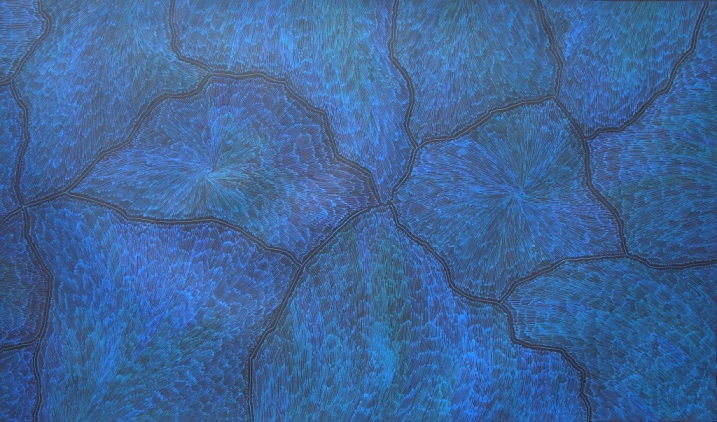
Fire
Tarisse also produces images related to the elements and the natural world. She has some paintings on the fire theme. These could be like looking closely in at a fire, so you’ve got glowing coals and the heat coming off the fire. Or it could be more of a macro view, where you’re flying over a country that is burning.
There are hot spots that are blazing and other areas that are just smouldering. This kind of micro and macro view of the natural world is something that both artists produce so well.
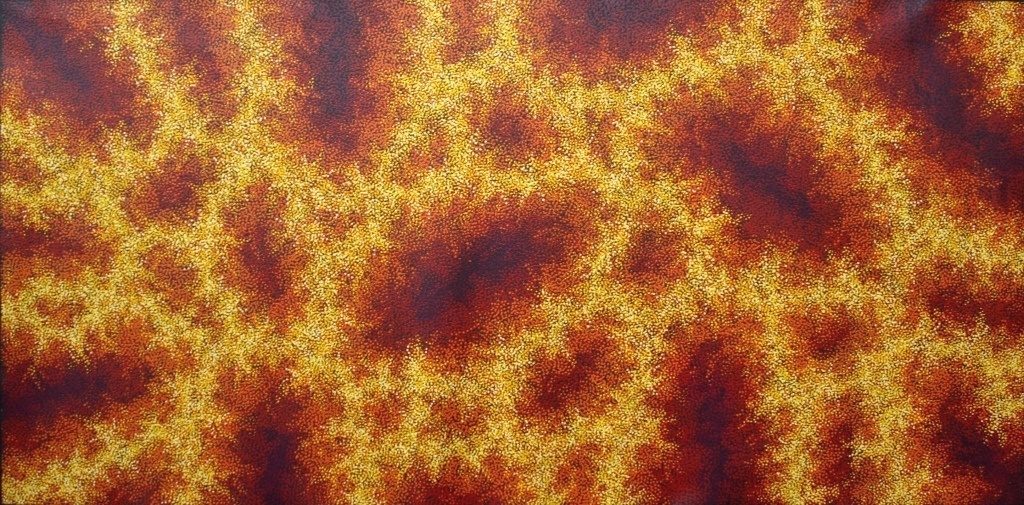
There’s another painting from Sarrita’s Gurindji series, which is also about the land and lightning, but treated differently. This painting’s been getting enthusiastic responses from people who’ve seen it so far.
It has a warm grey colour with large circular areas marked in, and then the fine dot work over the top. It is a variation on the black and white paintings that Sarrita and Tarisse have done in the past. This time there is an extra dimension, this warm bluey-grey colour, and large, concentric circles. This is offset by the white that is the lightning pattern that sits over the top of the canvas. This is Sarrita thinking about the Gurindji country and her ancestry.
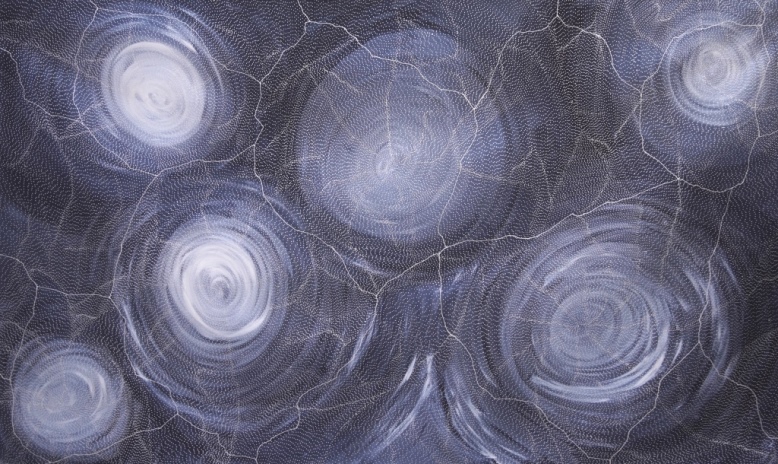
Wet Season
There is another interesting work from the Ancestor series. Sarrita has worked through some ideas based on the wet season on country. It is the story about how people traditionally used the land during that season.
This painting is about the land when it’s well covered with water. It uses tones of blue to create the big swirling areas that are the central sources of water, as well as showing the way people gather around those water sources.
Dots and Composition
There is also a couple of very beautiful, small paintings on the Ancestors and water theme, as well as one larger painting we’re hanging in the ground floor gallery. These works have extraordinary veils and layers of dots.
At one level it seems like there are millions of dots that appear in layers of three or four colours. There is such beautiful design and structure coming out of these random assortments of colour dots. It is quite amazing. These works are so well structured.
I find it quite difficult to see and articulate the structure because there are no clear borders and there are spaces in between the dot work in various sections sections. Out of that randomness and out of that multi-layering of dots, you get these beautiful compositions.
The way the composition is expressed is organic, just like in nature, just like on the land. There is a sense that the design comes out of the way things are placed, rather than any kind of fixed design that sits there ready for you to see and be able to touch.
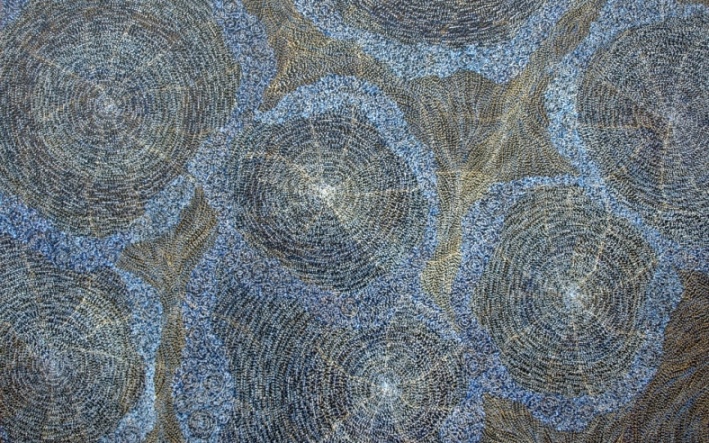
My Country
Another work I find interesting is called My Country. Tarisse has a painting that is very different to anything else in the exhibition. It is like a jigsaw, it may well be more like a patchwork of designs that features areas of different scale of design.
Some areas are composed of dots, some are cross hatching, some are large circles with larger emanating concentric shapes. It feels like Tarisse has picked up many small designs out of nature and put them together in a patchwork, with a bit more structural control than in the bigger paintings.
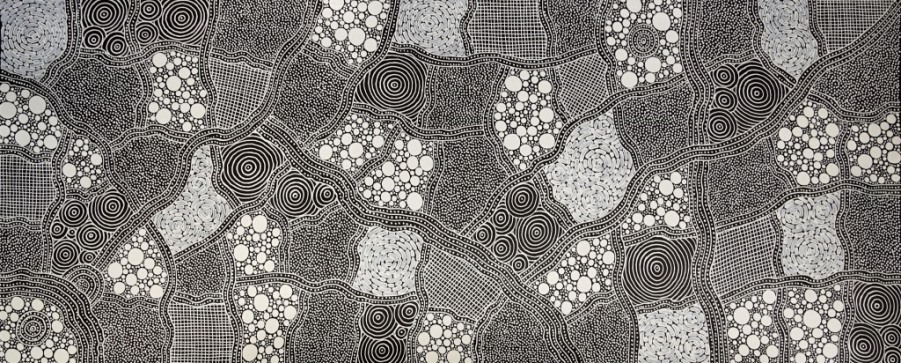
Grand Statements of Nature
What always impresses me about the paintings of Sarrita and Tarisse is the refined, pared back reference to nature, to the structures and the colours that are quite minimal in their tonal variations. The biggest paintings are very grand statements of nature, but they’re very refined in the way they’re put onto the canvas and with the colours carefully selected for the paintings. These are the sort of paintings you can sit down with and contemplate. You can look at them and look into them, and you keep seeing subtle references to the structures of nature. It takes you on a journey of contemplation about what the world is actually made up of.
Samsung International Art Project
Sarrita and Tarisse, while young artists have already had prolific careers. Sarrita King has been selected as the only Australian artist to be part of an international artist group that Samsung are featuring on their latest TV technology.
The idea is that when a television is not in use, it will display artwork on the screen. Sarrita is the only Australian artist chosen. There have been about 30 artists worldwide chosen for inclusion in this project. People who have one of these new range of Samsung televisions can select the artwork they want to be displayed when the television is not in use.
It’s an international project, and Sarrita was selected as the only Australian artist to be involved. I think that is a great triumph and a great honour for this young artist who’s not yet thirty. Her work will be presented on this new international stage and we are thrilled for her.
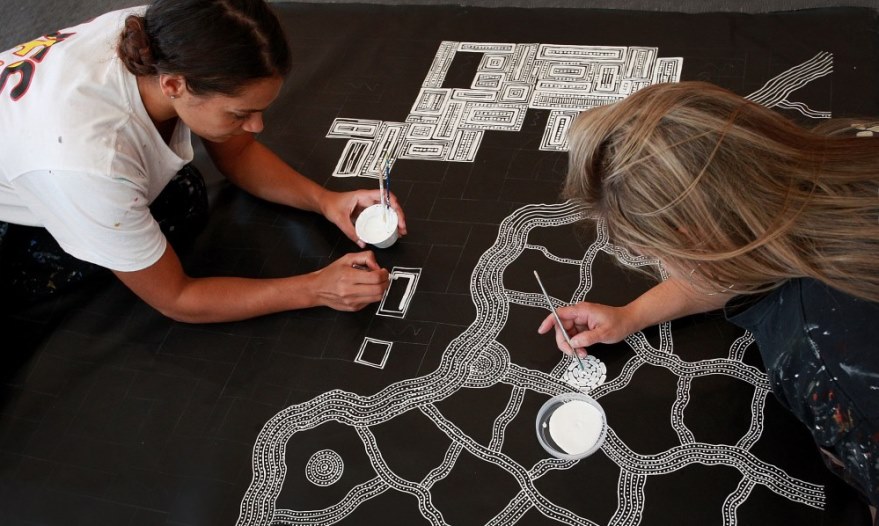
Read More:

